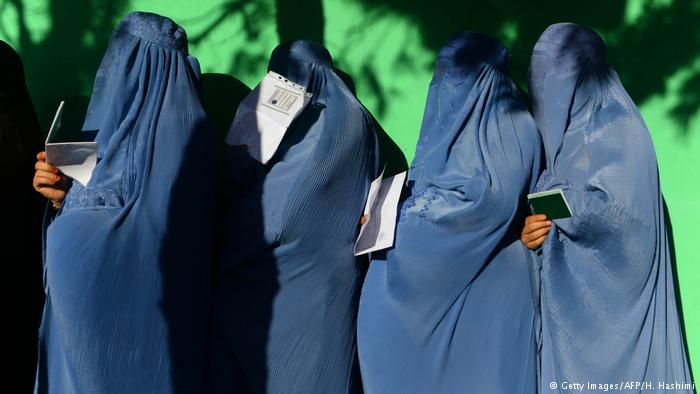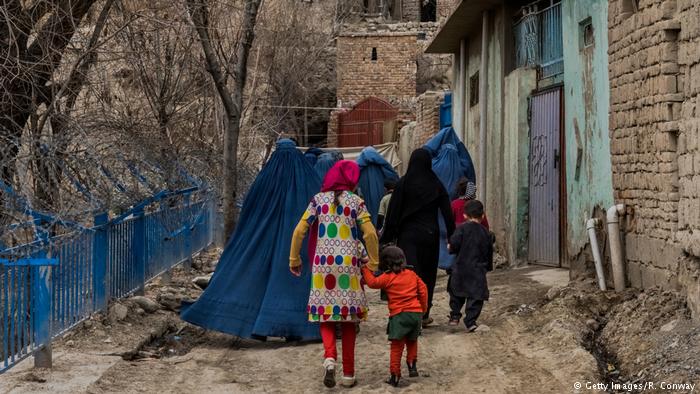The Afghan girl’s cry for help

As a child, I often imagined I would die in front of my family or class mates and they would express their love to me and grieve over my dead body. This thought gave me a lot of satisfaction and even though I never really wished to be dead, just thinking I could be close to death assured me that I was loved and cared for.
Whenever I hear about a new case, where schoolgirls allegedly are poisoned I have to think about myself as a little girl too. The mysterious poisonings of school girls in Afghanistan has again become a headache for the Afghan government and worried Afghan parents. Until today, nobody really knows what is exactly behind the verdict of school going girls in Afghanistan who believe that they have been poisoned, but there is no scientific evidence for it. Having pondered over the several poisoning cases that have been reported over the recent months, I recount some of my observations of Afghan girls and women living in Afghanistan. My observations can not be seen as representative for Afghan women as a whole, but they might shed some light on the background of the strange poisonings.
School girls in Afghanistan have been under threat for a long time. Fundamental groups in the country try to hinder girls from receiving an education at all costs.
Mina, the daughter of our close family friends is like any regular girl living in Afghanistan. Like most girls she was interested in make up and fashion. Sometimes she would steal my make up instead of asking for it; sometimes she would steal money too. Having grown up with only brothers, she was not very confident in front of others, but she knew how to defend herself in her own family. She is just a normal girl.
It was only when Mina became sick a few years back that I started to take notice of her. She was an introvert who rarely ever started a conversation. Sometimes she asked if she could sit next to me and watch me while I would work or get dressed, but she never said much. It was only when she became sick that I really began to think about what lay underneath the surface of the pretty girl with big, round eyes.
Possessed by an evil spirit
Obviously Mina was sick. Her symptoms were real, but there was no cause for it. The whole family was very worried; no one knew what sickness she had. The only thing they knew: She fainted repeatedly; she became unconscious or had weeping fits, or even started screaming for no reason. The doctor couldn’t help her, which worried her parents even more. “We brought her once to the doctor, he said she is fine. That guy must have been an amateur, can’t he see our daughter is sick?” her parents complained. As a result she was taken to different mullahs, to pray for her and heal her sickness with the help of taweez, pieces of paper with Quran verses on it.
After a while her illness had gotten to a point that she had scratches on her body and started seeing jinn, ghost-like creatures. Her family couldn’t leave her at home alone anymore, because they feared something would happen to her or she would hurt herself. Her mother spent a lot of money on healing her with the help of mullahs, but nothing worked. My dad, who is a doctor, told them, her daughter was not possessed by a ghost, she just had a depression, but no one listened. “What’s a depression? That’s what lunatics have”, was their answer. A thought most Afghans in Afghanistan share.

A lot of Afghans prefer the help of a fortune-teller or a mullah to help them with physical and psychological problems.
After a while Mina got engaged. She had chosen the groom herself and had convinced her parents by threatening to fall sick again. She was not 18 yet and it was against our family customs to marry off daughters in the family at such a young age.
But Mina got what she wanted: She had her way and all of a sudden she was healed too. No fainting anymore and no ghosts that would haunt her. From time to time she still pretended to be sick to escape the house chores, but by now no one really takes it seriously anymore. When I ask her brothers about the jinn, they laugh: “Jinn do not exist”, they reply.
Societal pressure on Afghan women
If you are a woman and you live in Afghanistan you are living a life full of restrictions and expectations that you have to cope with. Very few women are given permission by their families to go out of the house and indulge in leisure activities, but even if one does enjoy these freedoms, the Afghan society pressurizes a woman into a life full of norms and traditions that she has to live by. Speaking up against this repression is rarely an option. Fearing the sanctions, most of the women try not to get their lives in danger and just get along with the societal pressure.
Going out with friends, choosing a career of your own, choosing a life partner on your own, dressing the way you like, laughing, talking; simply everything has to be controlled by society – by the “others”. An Afghan woman would hear this one sentence the most in her life: “Mardum che bogoyan?”, “What will people say/think?” (If one acts in a certain (unwanted) behaviour). The examples mentioned above could even lead to death depending on how radicalized the environment is that you live in. If you’re unlucky, no one is willing to marry you or your family’s name will be dishonoured, which is regarded a crime worse than death. Apart from the social consequences Afghan women are facing, four decades of war are only adding up to what most women have to go through.
What’s left to do as an Afghan woman? Either you are courageous enough to speak up and fear for your life afterwards or you shut up and find other ways to rebel. In some cases family pressure or the pressure by society becomes worse to an extent that psychological problems can occur as well.
Cry for help
One of the signs of psychological stress is the cry for help in subtle ways. I’m not a psychologist or psychiatrist but I can still say; that the psychological stress Afghan women are going through has got nothing to do with pretending to be sick. They really are sick, just not physically sick but mentally. A very high percentage of Afghan women are suffering from trauma and depression. Some studies say that 80% of all Afghan women are depressed. Why wouldn’t they be? If I, an Afghan woman who has only lived her early years in Kabul, has problems hearing fireworks and who is still scared of dark forests – why wouldn’t an Afghan woman not be depressed and psychologically instable? An Afghan woman, who is taunted by death, war and repressed by misogynist structures for decades, has every right to be mentally ill.
Today I don’t imagine to die in front of my dear ones. Ironically in my early teens I began suffering from severe anaemia and hypertension, which would make me faint a lot in school and other places. Since then I stopped wishing that physical illness should bring me the social attention I was lacking elsewhere.
The truth probably is that Afghan school girls may not be poisoned, but no one can ignore the fact that this phenomena exists. These girls need help, they are crying for help and it is our duty to hear them out. Given the fact that a whole country and every generation in this country might be traumatized and suffering from PTSD and depression, there has not been enough work done in this field at all. You can spend millions of more money to bring democracy to Afghanistan, but as long as you don’t heal their mental wounds, there will never be peace in Afghanistan.
Waslat Hasrat-Nazimi
This is a reprint from DW journalist Waslat Hasrat-Nazimi’s blog “Waslat.” You can read the original entry here.






